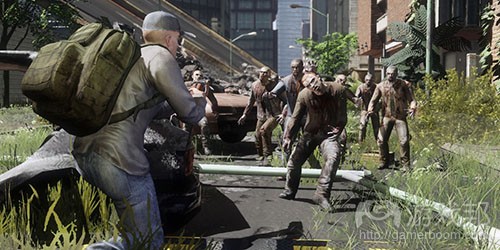“幸运的独立开发者”的神话
作者:Simon Roth
在我所关注的独立业务圈中经常会出现有关开发者的成功中的“运气元素”的讨论。
我们曾经讨论过《我的世界》是如何获得成功,或者Rovio在创造出《愤怒的小鸟》前已经创造了51款游戏,或者游戏开发该如何通过“快速失败”去提高获胜的可能性,以及我们该如何做计划去创造出一款大获成功的游戏。
这种业务态度是具有破坏性的,特别是对于独立社区来说。小型开发者正在错过创造可持续发展业务的可能性,在人们的印象中他们总是未能基于明确的方向走向成功,如果获得了成功也是因为走运。
此外这种态度还会大大地抑制创造性并扭曲开发者们所创造的游戏类型。我敢保证大多数独立开发者都会为了游戏销售而放弃大型设计。
似乎我们对于成功的误解是源于普遍的生存偏差所主导的独立开发圈中的业务开发讨论。一些成就的细节之所以遭遇忽视是因为它们特别“明显”,从表面看来一点都不重要,或者开发者太过谦虚/尴尬而不能将其成功归因于辛苦的工作。
这意味着带着昙花一现的作品的公司吸引了大众的注意力,与此同时,像Introversion,Positech,Mode 7,Distractionware和Vlambeer等可靠的公司则年复一年地埋头创造具有创造性和盈利性的游戏。
将成功和游戏销售额归功于运气便等于承认你不清楚成功的整个过程。我们必须仔细衡量所有花费于游戏开发,市场营销,PR和社区管理方面的努力。风险也可以对误差范围作出解释。一旦你了解这种范围,你便能够在失败区域作出修改,并努力朝预期结果发展。
幸好实践并不像听起来那么复杂或昂贵,即使在小型工作室中也是如此。我们可以基于较少的预算与直觉做到这些;所以真正重要的是我们能够将其落实行动。
独立游戏正在发生改变
2015年,你不能再期待着自己只要创造出一款优秀的游戏便能够获得成功。的确,“只是创造出一款优秀的游戏”的思潮已经不再是开发者可依赖的发展方向。尽管这仍然能够帮助他们获得知名度并创建游戏社区—-但这仅仅只是关于业务方面,就像IGF提名将会避开Steam Greenlight所选择的游戏;实际上现在的你可以出售任何游戏。《The War Z》(游戏邦注:更名为《Infestation:Survivor Stories》)便经常遭受批评并被当成是史上最糟糕的游戏之一,尽管如此这款游戏还是卖出了300万份。
独立巨星的黄金时代已经结束了,Steam和其它门户网站中可能已经充斥着无数游戏,但现在我们似乎更容易推动立基游戏和创意游戏。我们不用太费劲便能够超越潮流,特别是作为拥有更多灵活性与较低开支的独立开发者。如果能够与媒体,YouTuber等建立良好的关系,参加或组织活动,独立开发者便能够从任何规模的业务开发中获得积极的回报。
不管怎样付出与收获都是成正比的。就像Rami Ismail为了在Vlambeer的辛苦付出(总是会参加任何游戏活动)或者Mike Biythell坚持不懈的与消费者和产业媒体的互动。
独立开发者需要领悟到这些并找到适合自己的位置。对于许多想要跨越运行并呈现一项业务的沉闷工作的人来说,如果开发者不能积极参与其中,他们绝对会败给那些愿意尝试的人。
(本文为游戏邦/gamerboom.com编译,拒绝任何不保留版权的转发,如需转载请联系:游戏邦)
The myth of the ‘lucky indie’
By Simon Roth
In the indie business circles I follow, there is often talk about the “luck” in a dev’s success.
There’s discussions on how Minecraft was a fluke, or the old nugget of how Rovio made 51 games before Angry Birds, or how development should “fail fast” to increase output and up the odds of a good roll of the dice, and how we must plan our companies around making the one game that will drag us out of the gutter.
This attitude to business is damaging, especially to the indie community. Smaller devs are passing up the chance to create a sustainable business, under the impression they cannot work towards a success with clear direction, and must stumble upon it.
Moreover, it is actively suppressing creativity and distorting the types of games being made. I’m sure most developers who identify as indie would rather not make large design compromises to their vision for the sake of sales.
It seems that the strong misconception around success has been cultivated by the prevalent survivorship bias driving the discussions of business development in indie circles. Key details of accomplishments are glossed over due to them being ‘obvious’, seemingly unimportant or uninteresting, or the developer is far too modest/embarrassed to attribute their success to hard work on anything but the game.
Attributing the success and sales of a game to luck is to admit a black hole in your knowledge of the processes involved.
It means that companies with flash-in-the-pan products grab the limelight whilst solid businesses like Introversion, Positech, Mode 7, Distractionware and Vlambeer plug away at creative, profitable games year after year.
Attributing the success and sales of a game to luck is to admit a black hole in your knowledge of the processes involved. All effort expended in development, marketing, PR and community management can be carefully measured and returns calculated. Risk can be accounted for as a margin of error. Once you know these margins you can work towards improving in the areas you are failing and start building towards a realistic desired outcome.
Thankfully, this is not as hard – or expensive – as it sounds and is well within the grasp of even the smallest micro studios. The majority can be done on a tiny budget and gut feeling; the critical thing is that it must be done.
The indie game is changing
In 2015, you can no longer release a game in a vacuum and expect it to gain momentum. There’s no meritocratic option. Indeed, the ethos of ‘just make a good game’ hasn’t been a viable path for developers for several years. Whilst it will certainly help in building coverage and a community – and even on the business side; an IGF nomination will sidestep Steam Greenlight, for example – in reality you can sell any game. The War Z – rebranded as Infestation: Survivor Stories – was universally panned by critics and often cited as one of the worst games ever, but has sold 3m copies. Three million.
The golden age of indie superstars may be over, Steam and other portals may be awash in thousands of games, but it’s now easier than ever to drive sales of niche and creative titles. It takes very little effort to rise above the tide, especially with the greater flexibility and low overheads of being an indie. Forming relationships with the press, YouTubers and streamers, attending and organising events – an independent developer can see positive returns on almost any amount of business development.
As the effort increases so do the gains. Just look at Rami Ismail’s tireless work for Vlambeer, attending nearly every games event under the sun, or Mike Bithell’s constant and assiduous interaction with the consumer and industry press.
Indies need to embrace this and find their own comfortable place in it. It might seem tough for many who want to see themselves above and beyond the tedium of running and presenting a business, but if devs do not actively engage with it, they will needlessly lose out to those plucky few who will.
Remember, “diligence is the mother of good luck”.(source:develop-online)








































 闽公网安备35020302001549号
闽公网安备35020302001549号